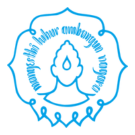Gender Differences in Mental Health Responses of Health Workers During the Covid-19 Pandemic: A Systematic Review with Meta-Analysis
Abstract
Background: The Covid-19 pandemic caused great stress, especially for health workers which resulted in moderate or severe symptoms of depression, anxiety, insomnia, and more serious stress. Gender is very influential, given the differences in biological and social roles between men and women. Gender differences between men and women allow for variations in strategies in responding to mental health to increase awareness and self-management, so as to avoid mental health problems during the Covid-19 pandemic.
Subjects and Method: Meta-analysis was performed by searching articles from Google Scholar, PubMed, Scopus, Springer Link, and health-related databases. The keywords used in the article search were "health workers" AND "covid-19" AND "mental health". The inclusion of the criteria in this study is a full-text article, from 2019-2021, with a study design cross-sectional. The article analysis was carried out using RevMan 5.3.
Results: There were 5 articles analyzed, the results showed no significant difference between gender and mental health responses among health workers during the Covid-19 pandemic (aOR= 1.12; 95% CI= 0.59-2.13; p=0.01).
Conclusion: Not significant between primary studies regarding gender differences in mental health responses to health workers during the Covid-19 pandemic.
Keywords: health workers, covid-19, mental health
Correspondence: Riyesti Hero Fresna, Purwantoro Special Educational School. Wonogiri Regency, Central Java 57695. E-mail: riyestiherofresna01@gmail.com. Mobile +6281227831443.
Journal of Health Policy and Management (2021), 06(02): 130-138
https://doi.org/10.26911/thejhpm.2021.06.02.05
References
Broughton DE, Brannigan RE, Omurtag KR (2017). Sex and gender: you should know the difference. Sterile Fertile. 107 (6): 1294-1295. doi: 10.1016/j.fer-tnstert.2017.04.012.
Cai H, Tu B, Ma J, Chen L, Fu L, Jiang Y, Zhuang Q (2020). Psychological impact and coping strategies of front-line medical staff in Hunan Between January and March 2020 during the outbreak of Coronavirus Disease 2019 (COVID-19) in Hubei, China. Medical
Sci Monit. 26: e924171-1–e924171-16. https://dx.doi.org/10.12659%2FMSM.924171.
Cao HZC, Li GHY, Li L, Huang S, Zhao J, Liu J, Jiang Y et al. (2021). A cross-sectional study of psychological status in different epidemic areas in China after the COVID-19 outbreak. Front Psychiatry. 11: 575705. doi: 10.3389 / fpsyt.2020.575705.
Chen CH, Pei HY, Fang LK, I J. Y,Che YS (2021). Experience of 2003 SARS has a negative psychological impact on healthcare workers in the COVID-19 pandemic: a cross-sectional study. Sao Paulo Med J. https://doi.org/-10.1590/1516-3180.2020.0516.R1.1-0122020.
Galasso V, Pons V, Profeta P, Becher M, Brouard S, Foucault M (2020). Gen-der differences in COVID-19 related attitudes and behavior: Evidence from a panel survey in eight OECD countries. Proceedings of the National Academy of Sciences of the United
States of America. 117(44): 27285–91.
Handayani R, Kuntari S, Darmayanti A, Widiyanto A, Atmojo J (2020). Factors that cause stress for health workers and the public during the Covid-19 pandemic. Journal of Mental Nursing. 8(3): 353-360. https://jurnal.unimus-.ac.id/index.php/JKJ/article/view-/5990.
Jin JM, Bai P, He W, Wu F, Liu XF, Han DM, Liu S, Yang JK (2020). Gender differences in patients with COVID-19: Focus on severity and mortality. Front Public Health, 8: 152. https://-doi.org/10.3389/fpubh.2020.00152.
Kang L, Li Y, Hu S, ChenM, YangC, Yang BX, Wang Y et al. (2020). Themental health of medical workers in Wuhan, China dealing with the 2019 novel coronavirus. The Lancet Psychiatry. 7(3): e14. https://doi.org/10.1016/S2-215- 0366 (20) 30047-X.
Kim JS, Choi JS (2016). Factors influencing emergency nurses' burnout during an outbreak of middle east respiratory syndrome coronavirus in Korea. Asian Nursing Res. 10(4): 295–299. https:-//doi.org/10.1016/j.anr.2016.10.002.
Khanal P, DevkotaN, Dahal M, Paudel K, Joshi D (2020). Mental health impacts among health workers during COVID-19 in a low resource setting: a cross-sectional survey from Nepal. Global Health. 16: 89 https://doi.org-/10.1186/s12992-020-00621-z. Square. 1–27. https://doi.org/10.21203/rs.3.rs- 40089/v1
Lai J, Ma S, Wang Y, Cai Z, Hu J, Wei N, Wu J et al. (2020). Factors associated with mental health outcomes among health care workers exposed to coro-navirus disease 2019. JAMA Network Open, 3(3): 1–12. https://doi.org/10.-1001/jamanetworko pen.2020.3976.
Leira SM, Madoz GA, Ochoa ME, Ibanez A (2020). Psychological impact of COVID-19 pandemic and related variables: A cross-sectional study in a sample of workers in a Spanish Ter-tiary Hospital. Int J Environ Res Pu-blic Health. 18(7): 3608. https://doi.-org/10.3390/ijerph18073608.
Liu CY, Yun ZY, Xiao MZ, Xinying X, Qing LD, Wen WZ, Andy SK (2020). The prevalence and influencing factors in anxiety in medical workers fighting COVID-19 in China: a cross-sectional survey. J Epidemiol Infect. 148(e98): 1–7. https://doi.org/10.1017/S09502-68820001107.
Murti B (2016). Principles and methods of epidemiological research Karang-anyar: Bintang Fajar Offset.
Ramirez LAC, Garcia PS, Bernabeu JP, Perez ME, Rodriguez MJ, Van DHCJ (2021). Impact of COVID-19 on the anxiety perceived by healthcare pro-fessionals: Differences between pri-mary care and hospital care. Int J Environ Res Public Health. 18: 3277. https://doi.org/10.3390/ijerph18063277.
Spagnolo PA, Ramchandani VA, Schwandt ML, et al. (2016). Faah gene variation moderates stress response and symp-tom severity in patients with post-traumatic stress disorder and co-morbid alcohol dependence. Alcohol Clin Exp Res. 40(11): 2426–34. https-://doi.org/10.1111/acer.13210.
Walter LA, McGregor AJ (2020). Sex- and gender-specific observations and implications for COVID-19. West J Emerg Med. 21(3): 507–509. https://-dx.doi.org/10.5811%2Fwestjem.2020.4.47536.
Wenham C, Smith J, Morgan R (2020). COVID-19: the gendered impacts of the outbreak. Lancet. 395(10227): 846–848. https://doi.org/10.1016/S-0140-6736(20)30526-2.
Xiang Y, Yang Y, Li W, Zhang L, Zhang Q, Cheung T, Ng CH (2020). Timely mental health care for the 2019 novel coronavirus outbreak is urgently needed. The Lancet Psychiatry. 0366 (20): 1–2. https://doi.org/10.1016/-S2215- 0366 (20) 30046-8.






